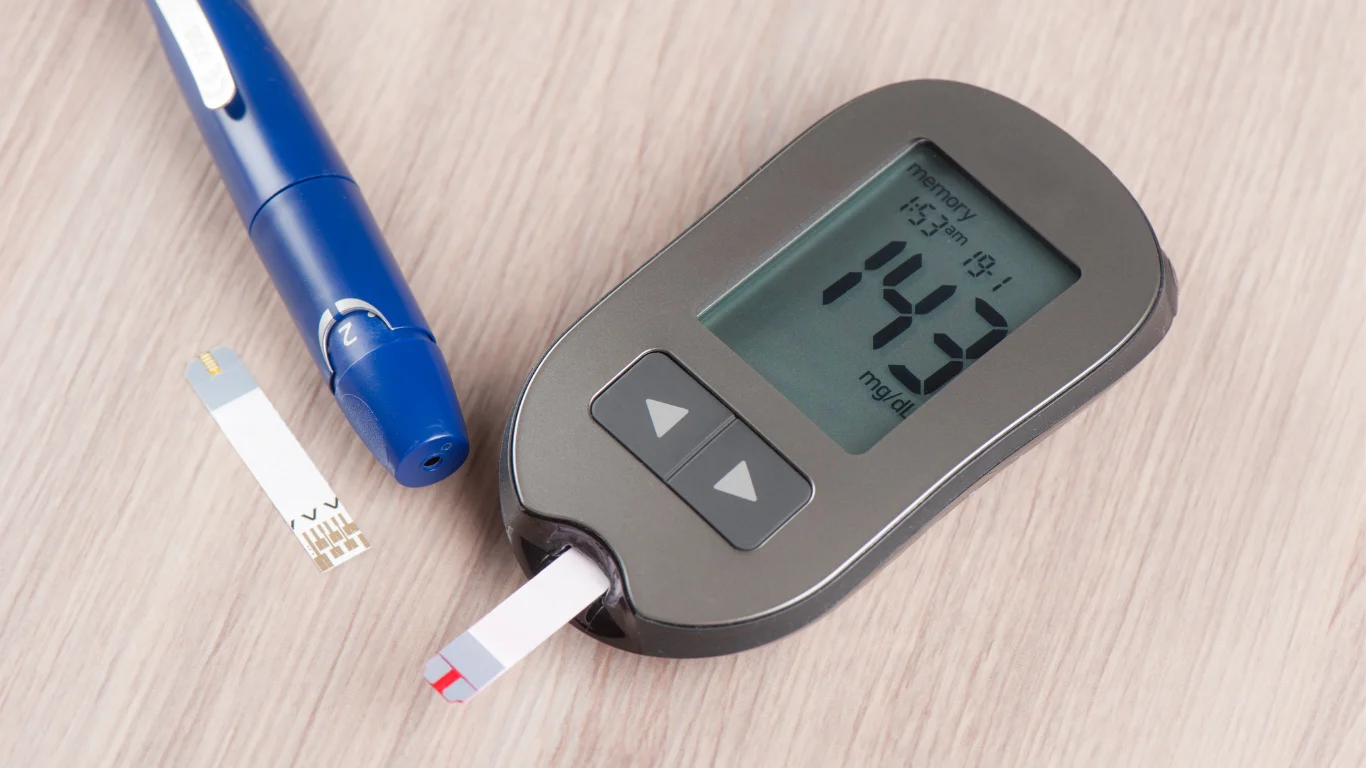What is Physiotherapy?
Physiotherapy, often viewed merely as a rehabilitation tool, actually encompasses a much broader canvas in the healthcare landscape. It represents not just a reactive measure but a proactive approach to maintaining and enhancing overall health, mobility, and wellness. Unlike the traditional portrayal of physiotherapy, which often focuses on recovery post-injury or surgery, its scope is expansive, integrating preventative care that supports a range of lifestyle and health aspirations.
Physiotherapy has woven its principles into the very fabric of modern wellness practices, appealing especially to those who demand more from their bodies and their busy lives. For athletes and fitness enthusiasts, it serves as a cornerstone for enhanced performance and injury prevention. For busy professionals and travellers, physiotherapy offers vital strategies for managing physical strain and stress while maintaining a high level of energy and productivity. Those living with chronic conditions find physiotherapy a relief and a companion, helping manage symptoms that impact daily life and long-term health. Moreover, individuals looking at preventative healthcare find physiotherapy an invaluable ally in the fight against the natural decline due to ageing, leveraging its techniques to foster longevity and vitality.
As we progress through this article, we will unfold the science behind how physiotherapy works, the specific techniques used, and the tangible benefits it offers to individuals from all walks of life, each with its unique health trajectories and wellness goals.
Understanding Physiotherapy
Physiotherapy is a healthcare profession dedicated to working with individuals to enhance and restore functional ability and quality of life. It is grounded in movement sciences and aims to improve or maintain the physical performance of the body. Its applications range from acute injury management to chronic disease control, making it a versatile and essential part of preventive healthcare and rehabilitation.
The Science Behind Physiotherapy
Physiotherapy combines a deep understanding of human anatomy, physiology, and the biomechanics of movement. Physical therapists are skilled in diagnosing physical abnormalities, restoring physical function and mobility, maintaining physical function, and promoting physical activity and proper function. As outlined by Healthline, the practice of physiotherapy includes a wide range of interventions and techniques that alleviate pain, and aid in rehabilitation and prevention of injuries, particularly those related to sports, work, or daily activities.
Initial Assessment and Diagnosis
Before any treatment begins, physiotherapists perform a comprehensive assessment that includes the patient’s medical history, physical examination, and sometimes diagnostic tests. This initial evaluation helps to determine the root cause of the issue and to tailor a treatment plan that addresses the individual’s specific needs. The goal is to not only treat the symptom but also to identify and manage the underlying cause of the pain or dysfunction.
Treatment Techniques in Physiotherapy
Manual Therapy Techniques
Manual therapy is a fundamental technique used in physiotherapy that involves hands-on manipulation of the muscles, joints, and soft tissues. This approach helps to reduce pain, increase range of motion, decrease inflammation, and facilitate movement. Techniques include massages, mobilizations, and manipulations of various body parts.
Exercise Therapy
Customized exercise programs are a staple of physiotherapy treatment. These programs are designed to improve strength, range of motion, endurance, and coordination. They are critical not only for rehabilitation but also for preventing future injuries and maintaining a healthy, active lifestyle. Exercise therapy is particularly effective for recovery from sports-related injuries, enhancing physical function, and managing chronic conditions as detailed by Healthline’s discussion on physiotherapy benefits.
Specialized Techniques
Physiotherapists employ various specialized techniques depending on the patient’s needs. These might include hydrotherapy, which uses water resistance for muscle workout without strain, or techniques like ultrasound and electrotherapy, which use high-frequency sound waves and electrical impulses to encourage healing and pain relief.
Monitoring Progress and Ongoing Care
An integral part of physiotherapy involves ongoing assessment and adjustment of the treatment plan. Regular evaluations ensure that the objectives of the therapy are being met and adjust interventions as the patient progresses. This continuous monitoring is vital in achieving the best outcomes and in maintaining an open line of communication between the patient and therapist, as emphasized by the importance of such interactions in achieving optimal health results.
Benefits of Physiotherapy
Immediate and Long-term Health Benefits
Physiotherapy is widely recognized for its immediate benefits, such as pain relief and improvement in mobility. However, its long-term advantages, though equally significant, are often less discussed. Beyond the immediate alleviation of symptoms, physiotherapy profoundly impacts overall health and well-being, promoting lifelong habits that maintain and enhance physical function.
Enhancing Neuroplasticity
One seldom-discussed benefit of physiotherapy is its role in enhancing neuroplasticity—the brain’s ability to reorganize itself by forming new neural connections. This aspect is particularly crucial following neurological injuries or in conditions like stroke. By engaging in targeted exercises, patients can foster connections that bypass damaged areas of the brain, promoting recovery and functional improvement that many assume are out of reach.
Psychological Benefits
The psychological benefits of physiotherapy are often overshadowed by the physical aspects. Regular physiotherapeutic interaction can significantly reduce depression and anxiety associated with long-term health conditions. This mental health boost is achieved through pain reduction, improved physical capacity, and the empowerment that comes from taking active steps towards personal health goals.
Specific Benefits for Target Audiences
Physiotherapy’s adaptability makes it uniquely beneficial to various demographics, including athletes, busy professionals, and individuals with chronic conditions. Each group benefits from tailored approaches that address specific needs and challenges, contributing to enhanced health outcomes.
Athletes and Fitness Enthusiasts
For athletes and fitness enthusiasts, physiotherapy goes beyond injury recovery to include performance enhancement and injury prevention. Techniques such as biomechanical assessments can pinpoint inefficiencies in movement that, if unaddressed, may lead to injuries. By correcting these, physiotherapy helps athletes achieve greater performance efficiency and longevity in their sports careers.
Busy Professionals and Frequent Travelers
Busy professionals and frequent travellers benefit from physiotherapy by managing the physical and mental strain of hectic schedules. Customized exercise regimes can be designed to fit into busy lifestyles, offering convenient solutions that improve posture, relieve stress, and enhance energy levels. This demographic often neglects physical health due to time constraints, making physiotherapy a critical service for maintaining their well-being.
Individuals with Chronic Conditions
Physiotherapy is indispensable for managing chronic conditions such as arthritis, fibromyalgia, and multiple sclerosis. Regular sessions help manage pain, increase strength, and maintain mobility. However, the role of physiotherapy in educating patients about their conditions and self-management techniques provides a foundational strategy for long-term disease management, which is a crucial but less touted aspect of physiotherapy.
Preventative Care and Wellness
Lastly, in the realm of preventative care, physiotherapy is pivotal in maintaining health before issues become evident. For those interested in anti-ageing and wellness, physiotherapy offers strategies that enhance balance, flexibility, and strength, which help prevent falls and injuries. Proactive engagement in physiotherapeutic exercises fortifies the body against the typical declines of ageing, supporting a higher quality of life longer than many might expect.
By delving into these less-discussed benefits, physiotherapy reveals itself not just as a means of recovery but as a comprehensive approach to maintaining and enhancing life’s quality across various stages and lifestyles. This holistic perspective not only informs but also empowers individuals to integrate physiotherapy into their regular health and wellness regimes.
Rethinking Physiotherapy: Beyond Traditional Boundaries
Expanding the Paradigm of Physiotherapy
Traditionally, physiotherapy has been pigeonholed as a reactive healthcare service, primarily sought after injury or surgery. However, this conventional view underestimates the profound capabilities of physiotherapy as a transformative tool in preventive health, lifestyle enhancement, and even social well-being. It’s time to challenge the standard perceptions and explore how physiotherapy can play an integral role in leading a revolution in holistic health practices.
Physiotherapy as a Lifestyle Choice
Integrating Daily Practices
In rethinking physiotherapy, consider it not just as a periodic treatment but as a daily practice integrated into lifestyle routines. For the busy professional, incorporating short, physiotherapist-guided exercises could be as routine as morning coffee. These exercises, designed to enhance posture and relieve stress, can be seamlessly integrated into the workday, transforming the very way we approach our daily activities.
Embracing a Proactive Health Model
Moving beyond the reactive model, physiotherapy can be a first line of defence in health maintenance and disease prevention. For individuals at risk of chronic conditions like diabetes or heart disease, physiotherapy can offer preemptive interventions. These interventions focus on improving circulation, strength, and overall physical resilience, potentially reducing the incidence or severity of future health issues.
Challenging Age-Related Decline
A New Narrative for Aging
The inevitability of physical decline with ageing is a widely accepted notion. However, physiotherapy challenges this fatalistic view by offering strategies that not only slow these declines but can also reverse some aspects of ageing-related physical deterioration. Regular physiotherapeutic interventions can maintain or even enhance flexibility, strength, and balance, which are often surrendered to age.
Preventative Strategies for the Elderly
For the elderly, regular physiotherapy sessions could become as fundamental as any other routine healthcare measure, like vaccinations or regular health check-ups. By adopting this approach, we can transform the narrative from one of inevitable decline to one of sustained vitality, reducing the overall healthcare burden associated with ageing.
Conclusion: Integrating Physiotherapy into Holistic Health Practices
Throughout this discussion, we’ve uncovered the extensive and often underappreciated benefits of physiotherapy, revealing it as much more than a post-injury or surgery solution. It is a comprehensive approach to enhancing overall health, mobility, and quality of life.
Recapitulating the Comprehensive Benefits of Physiotherapy
Physiotherapy serves as a pivotal element in managing musculoskeletal issues, enhancing physical function, and maintaining long-term health across various life stages and professional demands. It offers significant advantages in pain reduction, improved mobility, rehabilitation, injury prevention, and the management of chronic conditions. For individuals engaged in demanding lifestyles—be it through sports, intense work environments, or travel—physiotherapy provides essential interventions that optimize physical capacities and enhance daily performance.
The Importance of Therapeutic Partnerships
The success of physiotherapy is greatly enhanced by the dynamic relationship between the therapist and the patient, which relies on open communication and active participation. This collaboration is vital in crafting personalized treatment plans that effectively address unique health needs and goals. According to Healthline, the involvement of physical therapists trained in manual therapy, prescribed exercise, and patient education is crucial for achieving optimal outcomes.
Embracing a Proactive Approach to Physiotherapy
Looking forward, the integration of physiotherapy into regular health and wellness routines represents a proactive approach to healthcare. It emphasizes physiotherapy’s role not only as a reactionary measure to physical ailments but also as a preventive strategy that enhances and preserves health before issues become pronounced.
For those considering how to incorporate such practices conveniently into their lives, Best DOC Home Healthcare in Dubai. provides a practical solution by offering physiotherapy services directly at home. This not only ensures ease of access but also personalizes care in a comfortable and familiar environment, aligning with the needs of busy professionals, athletes, and individuals managing chronic conditions or seeking preventive care.
In embracing physiotherapy as a fundamental component of holistic health care, we challenge traditional perceptions and adopt innovative practices that contribute to a healthier, more vibrant life. This approach not only enhances our current state of health but also sets a foundation for future well-being, advocating for physiotherapy as an integral part of a comprehensive health strategy.














